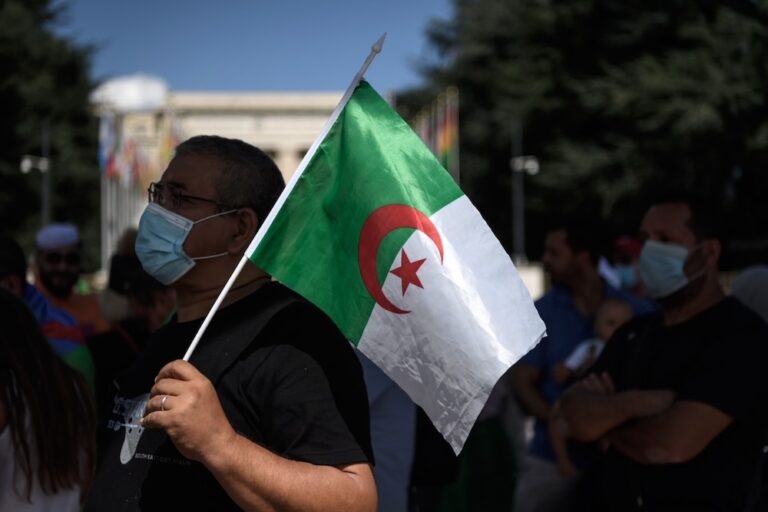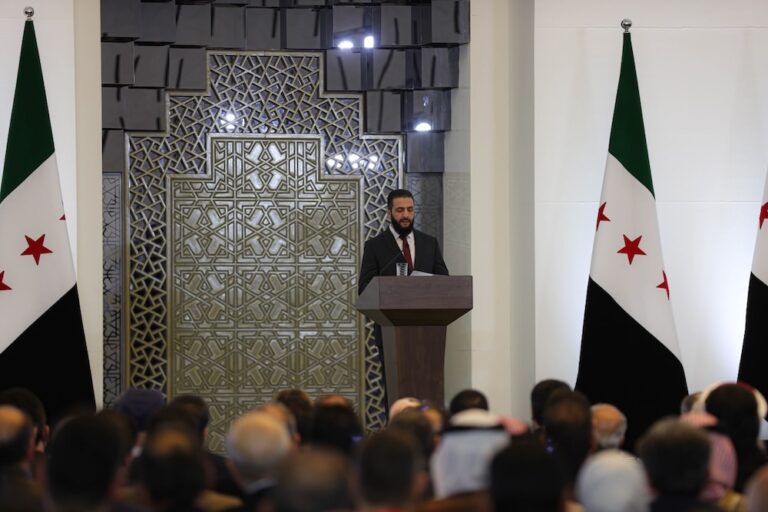(IFJ/IFEX) – The following is a 30 March 2005 IFJ media release: 30 March 2005 IFJ Backs New Court Bid In Protection of Journalists’ Sources Battle With European Commission The International Federation of Journalists today joined a former Brussels investigative reporter in his legal fight in the European Court to overturn action by the European […]
(IFJ/IFEX) – The following is a 30 March 2005 IFJ media release:
30 March 2005
IFJ Backs New Court Bid In Protection of Journalists’ Sources Battle With European Commission
The International Federation of Journalists today joined a former Brussels investigative reporter in his legal fight in the European Court to overturn action by the European Commission which led to police raids on his home and office and the seizing of information about his activities and sources, which, the Federation insists, is in breach of professional secrecy rules.
The IFJ lodged a formal statement to the Court of First Instance of the European Communities through its legal representatives Andreas Bartosch and Thomas M. Grupp, from the law firm Haver & Mailänder (Brussels/Stuttgart).
“This long-running battle has come to symbolise the fight for the cardinal principle of journalism – protection of sources – against the might of political bureaucracy,” said Aidan White, IFJ General Secretary.
The case concerns German news reporter Hans-Martin Tillack, who the IFJ says has been targeted by the European Anti-Fraud Office (OLAF) following his reports three years ago on allegations of irregularities made by Commission official Paul Van Buitenen – now a Member of the European Parliament – and how OLAF was investigating these complaints. OLAF then alleged Tillack bribed a European Union official for information and they complained to the German and Belgian authorities who authorised police raids in Brussels, which led to many of his documents being taken away.
“For three years this journalist has been hounded simply because he irritated officials by the sort of reporting which anywhere else would be regarded as legitimate and in the public interest,” said White, who is also General Secretary of the European Federation of Journalists which is campaigning for the charges against Tillack to be dropped. “The complaints should never have been laid, the raids should never have taken place and the law under which they have been carried out has now been changed. It is time for justice to be done in this case.”
The IFJ supports Tillack’s call to annul the decision of OLAF to forward complaints in February last year to the German and Belgian judicial authorities. Supported by the IFJ, Tillack earlier sought interim measures before the President of the Court of First Instance, but the application was dismissed and he was told to seek redress before the Belgian courts. In the meantime, an appeal was made to the President of the Court of Justice. A decision is awaited.
In the meantime, Tillack has had some better news following a draft recommendation of the European Ombudsman, issued on 2 February, who accused OLAF of presenting wrong or misleading information in a former inquiry lodged by Tillack. In a draft report of the European Parliament, on 9 March, the Ombudsman pointed out that it had been the intention of the legislator to offer to the persons concerned reliable protection under the rule of law already during the period of investigation. Further, the Ombudsman welcomed the news that the Belgian Parliament was drafting a new law which would in future prohibit searches such as that conducted in the Tillack case. That law was formally adopted by the Belgian Parliament on March 17.
“The protection of journalists’ sources is one of the core elements of press freedom and it must not be undermined by European and national decisions that appear to disregard the need for effective judicial protection,” said White. “This case is vital because it concerns support for journalists everywhere in their fight for legal cover when they put the authorities – even the most powerful in Europe – under proper professional scrutiny.”


